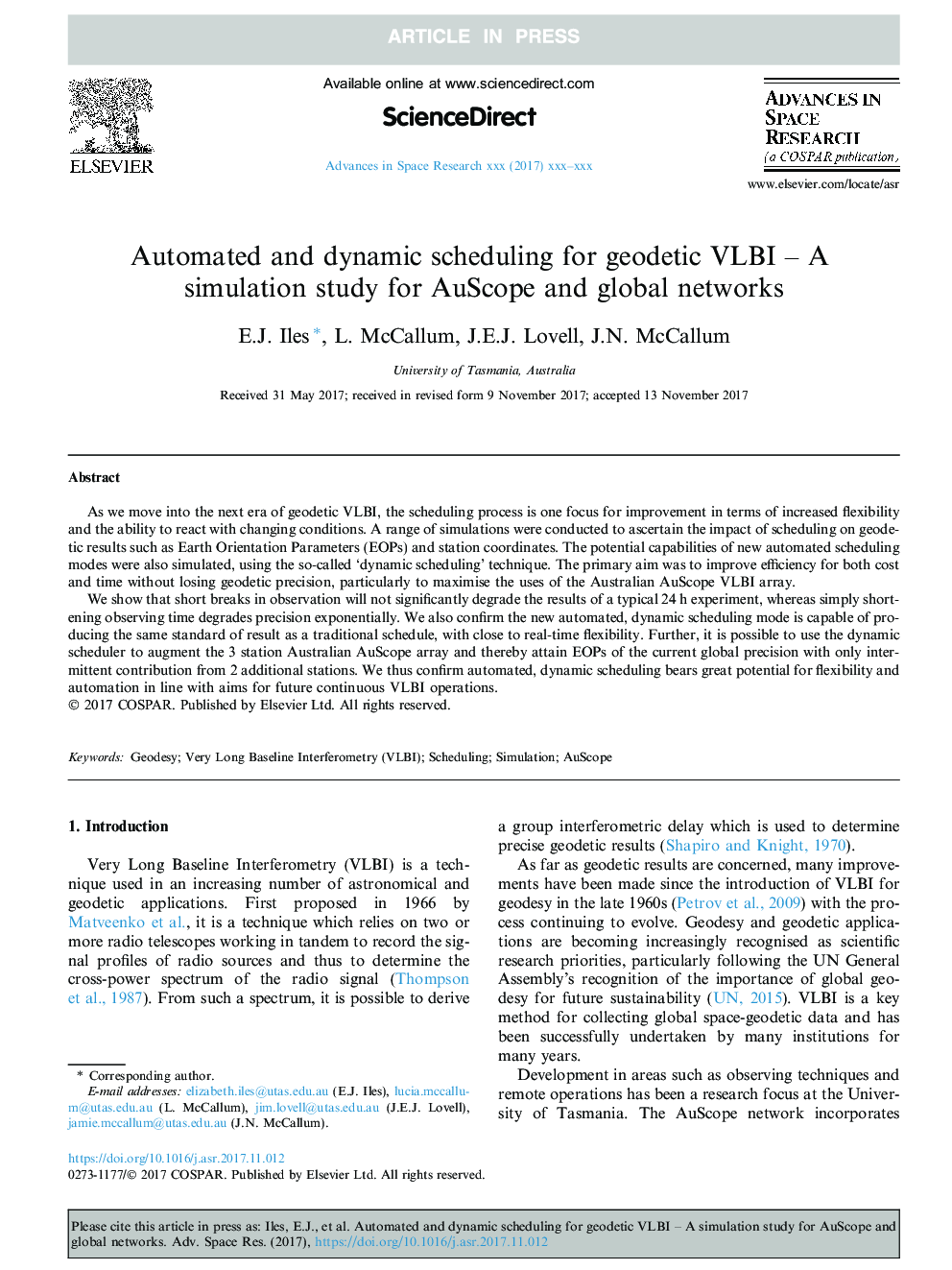| Article ID | Journal | Published Year | Pages | File Type |
|---|---|---|---|---|
| 8132297 | Advances in Space Research | 2018 | 12 Pages |
Abstract
We show that short breaks in observation will not significantly degrade the results of a typical 24â¯h experiment, whereas simply shortening observing time degrades precision exponentially. We also confirm the new automated, dynamic scheduling mode is capable of producing the same standard of result as a traditional schedule, with close to real-time flexibility. Further, it is possible to use the dynamic scheduler to augment the 3 station Australian AuScope array and thereby attain EOPs of the current global precision with only intermittent contribution from 2 additional stations. We thus confirm automated, dynamic scheduling bears great potential for flexibility and automation in line with aims for future continuous VLBI operations.
Keywords
Related Topics
Physical Sciences and Engineering
Earth and Planetary Sciences
Space and Planetary Science
Authors
E.J. Iles, L. McCallum, J.E.J. Lovell, J.N. McCallum,
